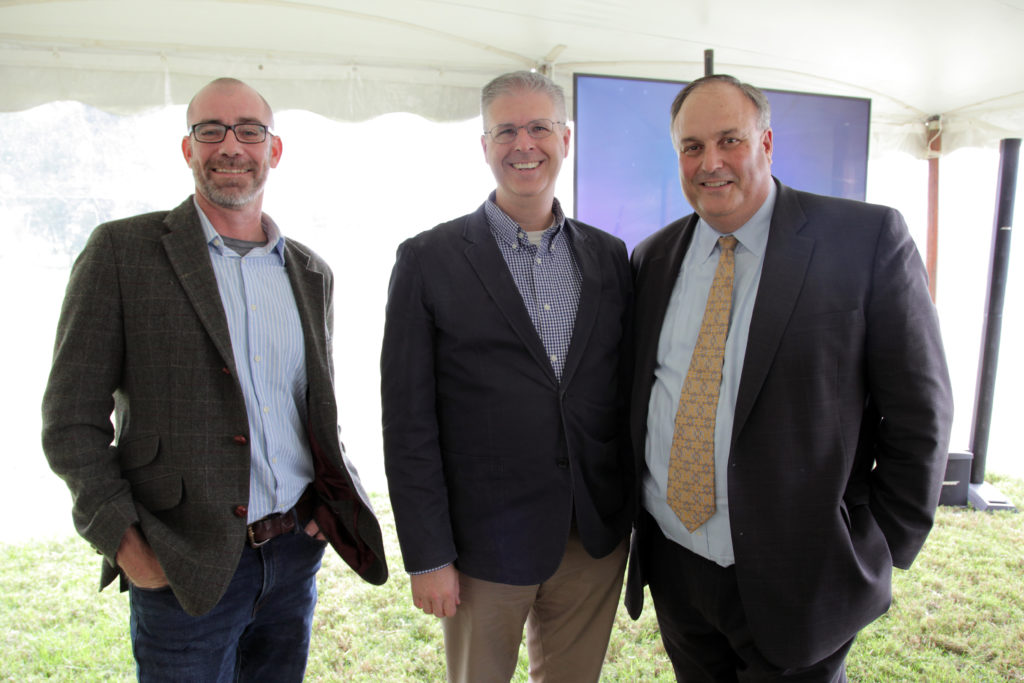*Press Release*
Contact:
Paula Combs
PPublic Relations Manager,
PThe Piedmont Environmental Council
Ppcombs@pecva.org
Po. (540) 347-2334 ext. 7021
Building Strong Rural and Urban Communities
“Good ruralism and good urbanism go hand in hand,” said Chris Miller, President of The Piedmont Environmental Council. “Today is about providing residents and local elected officials with great examples that can be applied within our communities”
Drawing over 150 attendees, PEC held their Annual Meeting on October 21 at historic Castle Hill Farm in Keswick. First Lady of Virginia Pamela Northam was in attendance and spoke about the importance of conserving lands in the state.
“Land conservation has long been a priority of the commonwealth, and for good reason. Conserving land is how we protect and honor Virginia’s rich history, environment and scenic beauty, and we would not be nearly as effective at conserving lands without the tireless, courageous work of our land trusts partners across the state,” said Northam.
Following the First Lady’s remarks, keynote speaker Charles Marohn, President and Founder of Strong Towns, delivered the keynote address.

Marohn began by stating, “I’m going to frame my talk by saying I’m not a preservationist. I’m not a conservationist. I’m not someone who comes to this conversation through that door. I have learned there are a lot of commonalities, a lot of common ground and there are a lot of things we can work on together.”
A trained engineer and planner, Marohn said his non-profit, Strong Towns, has a mission to support a model of development that allows America’s cities, towns and neighborhoods to become financially strong and resilient.
“Why can we find millions of dollars to expand a highway and we can’t find $500 to put in a crosswalk?” asked Marhon. “Our cities are dripping with investment opportunities but they do not look like the investment opportunities that we have grown accustomed to.
“Our investments today are small and we have become so obsessed with chasing the dollar out on the edge that we have ignored and missed the pennies, nickels and dimes that are laying there waiting for us to pick them up. And if we can reorient ourselves to slow down, recognize these gaps, recognize these investment opportunities, recognize where people are struggling in our communities and the little things it would take to address those struggles, not only can we put ourselves in a position to make investments that are going to benefit our cities, help us be more financially productive, make us strong and resilient again, but we can do it in a way where we actually improve people’s lives.”
The day also included a variety of workshops, one of which allowed guests to tour the mid-18th century home on the Castle Hill Farm property, which is at the center of the Southwest Mountains Rural Historic District and protected with a conservation easement.
“PEC tries to engage, educate and empower people, so residents and local officials have the tools to go forward and do things within their communities,” said Miller. “Today, we presented examples to help enhance quality of life through historic preservation, park and greenway improvements, land conservation, energy systems, urban planning, and fiscal policy for smart growth.”
“How many of you have installed solar panels at your home or farm? Or how many have put agricultural best management practices in place? Or donated a conservation easement?” Miller asked of the audience, with about a dozen raising their hands. “This is a room full of doers!”
The day closed with recognition of Gordonsville Mayor Robert Coiner for his leadership in the restoration, redevelopment and improvement of urban parks and greenways in Gordonsville. PEC worked with local residents and the University of Virginia School of Architecture to improve access and connectivity within the town and link it to open space resources in the Madison Barbour Rural Historic District.
